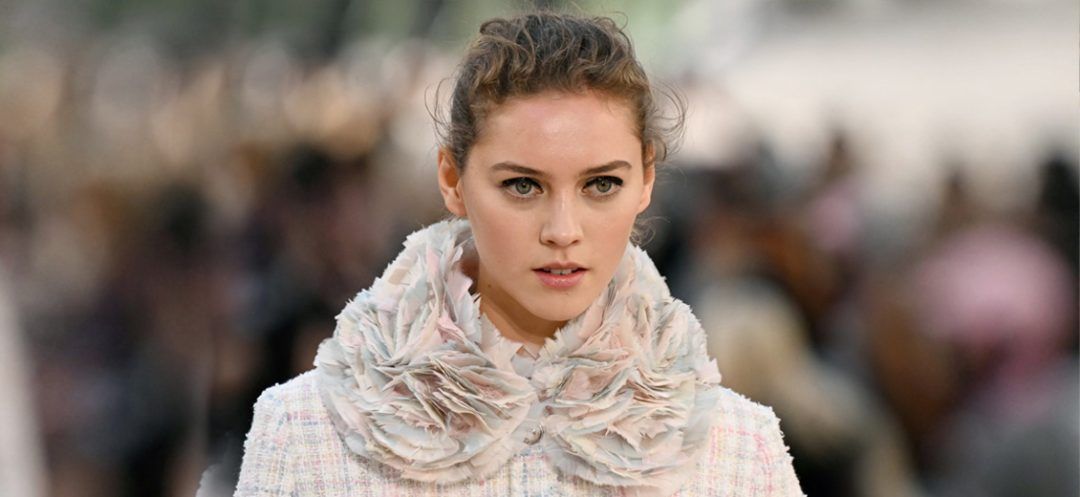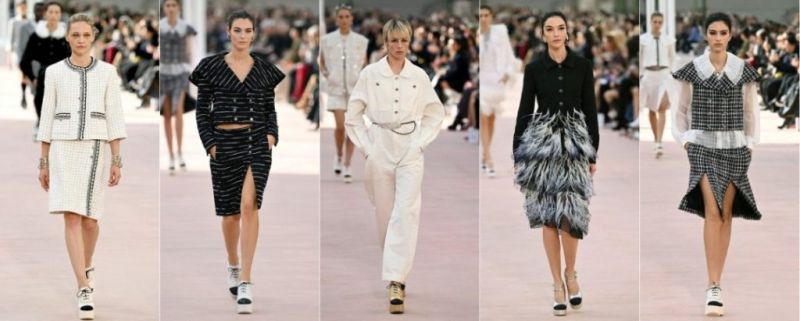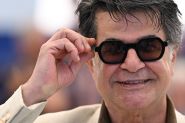
The final day of Paris Fashion Week concluded on Tuesday, October 1, with a series of major shows, including those from Chanel, Lacoste, Louis Vuitton, and the rising brand Coperni. Among the highlights was Chanel’s much-anticipated show, staged at the Grand Palais in Paris, marking the brand's return to this iconic venue after four years of renovations.
The last runway presentation for the Paris Fashion Week comes at a critical time for Chanel, as the fashion house continues to search for a successor to Virginie Viard, who abruptly departed in June. The event was infused with a sense of nostalgia, as it paid tribute to the brand’s legacy while offering a glimpse into its future.
 Photo Credit: Bertrand Guay / AFP
Photo Credit: Bertrand Guay / AFP
Chanel’s collection embraced lightness and fluidity with its signature use of pastels and airy fabrics, contrasting with its more traditional pieces like the iconic tweed jackets. Among the key looks were chiffon capes, wide-legged trousers, and embroidered transparent shirt dresses that gave a fresh twist to the house's classic silhouettes.
This runway show, however, wasn’t just about the clothes. It also provided a backdrop to discuss the brand’s future leadership. Rumors continue to swirl around who might take the creative helm, with names like Tom Ford, Hedi Slimane, and Jacquemus frequently mentioned. As Chanel’s mode director Bruno Pavlovsky stated before the show, "It’s essential to take our time and find someone who truly understands the DNA of the brand. We are in no rush, but an announcement could come by the end of the year."
[gallery size="full" ids="297511,297506,297505"]
Amidst this uncertainty, Chanel’s rich history, dating back to its founding by Gabrielle "Coco" Chanel in 1909, remains a source of strength. At just 27 years old, Chanel opened her first shop at 21 Rue Cambon in Paris, where she began her career as a hat designer. Her minimalist, elegant approach quickly attracted a clientele of glamorous actresses, and by 1916, she had expanded her business to include three clothing boutiques, with hundreds of employees.
Chanel's business acumen and sense of style helped her build an empire that, by 1931, employed over 2,000 workers in 26 ateliers. Her influence in fashion extended far beyond clothing. She revolutionized women's fashion by introducing a more relaxed and comfortable style, liberating women from the restrictive corsets of the time. One of her most famous creations, the little black dress, became a timeless staple, while her Chanel No. 5 fragrance remains an enduring symbol of luxury.
[gallery size="full" ids="297510,297509,297508,297507,297504,297503"]
As the only woman to run such a successful business in a male-dominated industry, Chanel became a beacon of women's emancipation. Her constant refinement of her designs, whether through new fabrics, colors, or accessories, ensured that her brand stayed at the forefront of fashion innovation. Coco Chanel herself once said, "My life didn’t please me, so I created my life," a testament to her bold vision and entrepreneurial spirit.
The ongoing search for a new creative director marks a pivotal moment in the brand's history, as it looks to move beyond the Karl Lagerfeld era. After 40 years under the leadership of Lagerfeld and his protégé, Virginie Viard, Chanel’s next leader will be expected to bring fresh ideas while maintaining the core values of the brand.
With AFP
The last runway presentation for the Paris Fashion Week comes at a critical time for Chanel, as the fashion house continues to search for a successor to Virginie Viard, who abruptly departed in June. The event was infused with a sense of nostalgia, as it paid tribute to the brand’s legacy while offering a glimpse into its future.
 Photo Credit: Bertrand Guay / AFP
Photo Credit: Bertrand Guay / AFPChanel’s collection embraced lightness and fluidity with its signature use of pastels and airy fabrics, contrasting with its more traditional pieces like the iconic tweed jackets. Among the key looks were chiffon capes, wide-legged trousers, and embroidered transparent shirt dresses that gave a fresh twist to the house's classic silhouettes.
This runway show, however, wasn’t just about the clothes. It also provided a backdrop to discuss the brand’s future leadership. Rumors continue to swirl around who might take the creative helm, with names like Tom Ford, Hedi Slimane, and Jacquemus frequently mentioned. As Chanel’s mode director Bruno Pavlovsky stated before the show, "It’s essential to take our time and find someone who truly understands the DNA of the brand. We are in no rush, but an announcement could come by the end of the year."
[gallery size="full" ids="297511,297506,297505"]
Amidst this uncertainty, Chanel’s rich history, dating back to its founding by Gabrielle "Coco" Chanel in 1909, remains a source of strength. At just 27 years old, Chanel opened her first shop at 21 Rue Cambon in Paris, where she began her career as a hat designer. Her minimalist, elegant approach quickly attracted a clientele of glamorous actresses, and by 1916, she had expanded her business to include three clothing boutiques, with hundreds of employees.
Chanel's business acumen and sense of style helped her build an empire that, by 1931, employed over 2,000 workers in 26 ateliers. Her influence in fashion extended far beyond clothing. She revolutionized women's fashion by introducing a more relaxed and comfortable style, liberating women from the restrictive corsets of the time. One of her most famous creations, the little black dress, became a timeless staple, while her Chanel No. 5 fragrance remains an enduring symbol of luxury.
[gallery size="full" ids="297510,297509,297508,297507,297504,297503"]
As the only woman to run such a successful business in a male-dominated industry, Chanel became a beacon of women's emancipation. Her constant refinement of her designs, whether through new fabrics, colors, or accessories, ensured that her brand stayed at the forefront of fashion innovation. Coco Chanel herself once said, "My life didn’t please me, so I created my life," a testament to her bold vision and entrepreneurial spirit.
The ongoing search for a new creative director marks a pivotal moment in the brand's history, as it looks to move beyond the Karl Lagerfeld era. After 40 years under the leadership of Lagerfeld and his protégé, Virginie Viard, Chanel’s next leader will be expected to bring fresh ideas while maintaining the core values of the brand.
With AFP
Read more



Comments